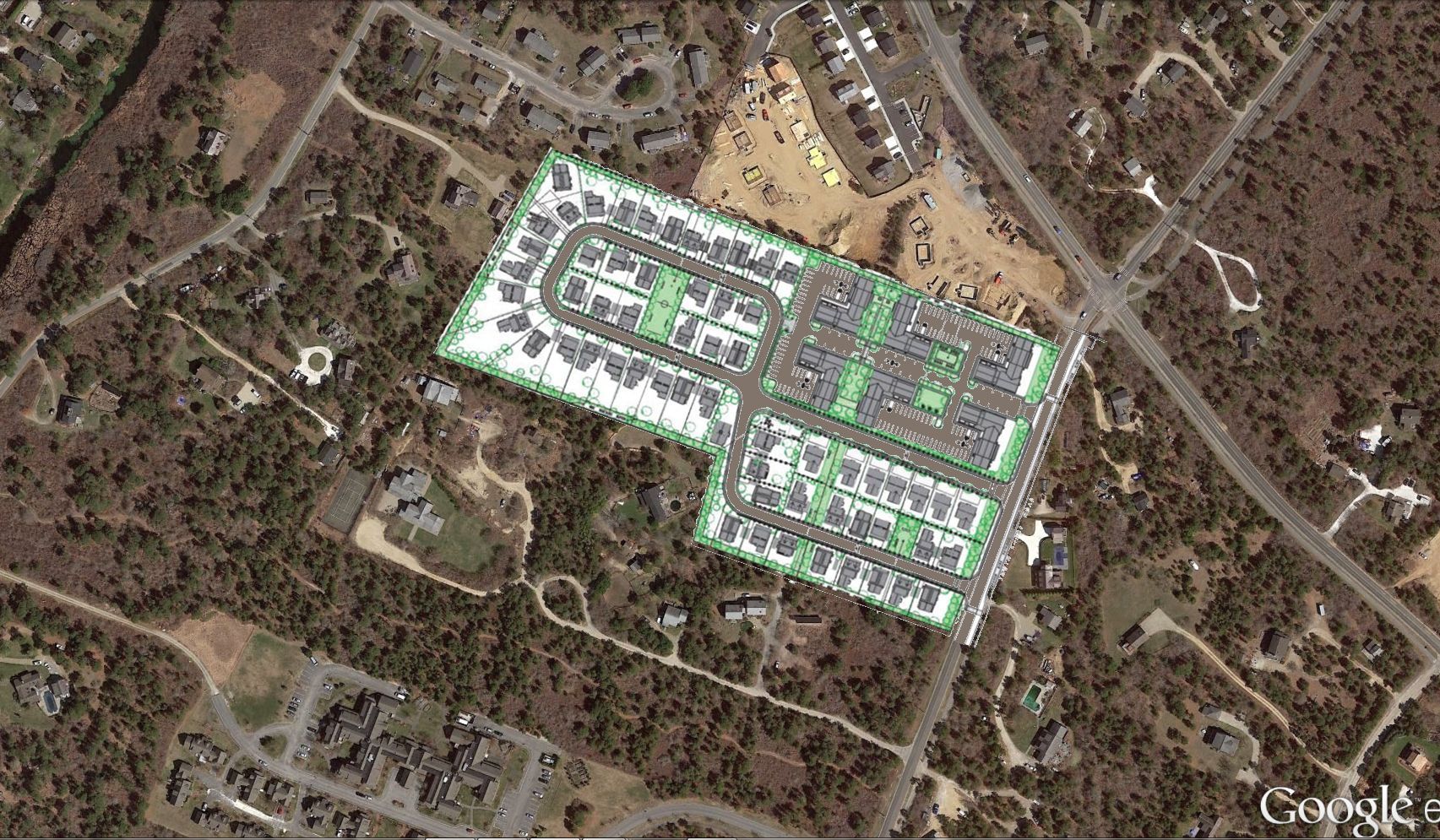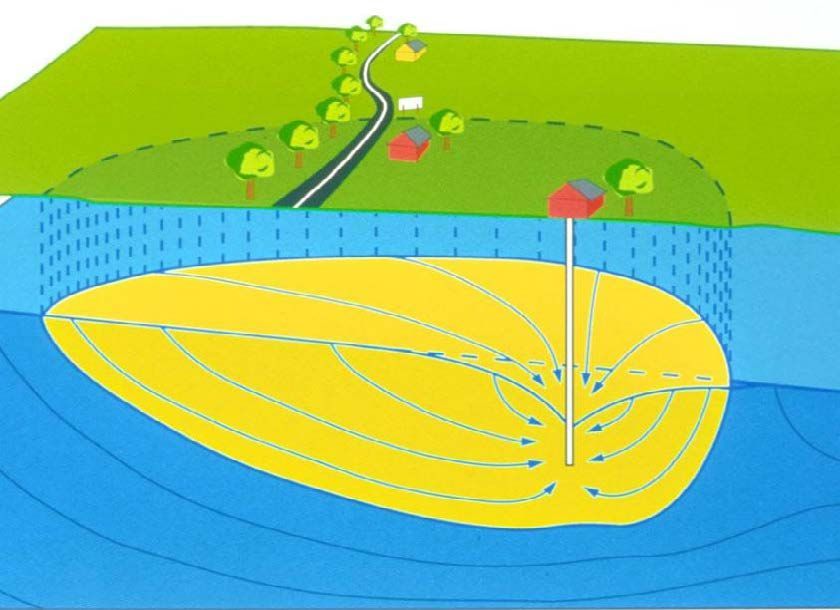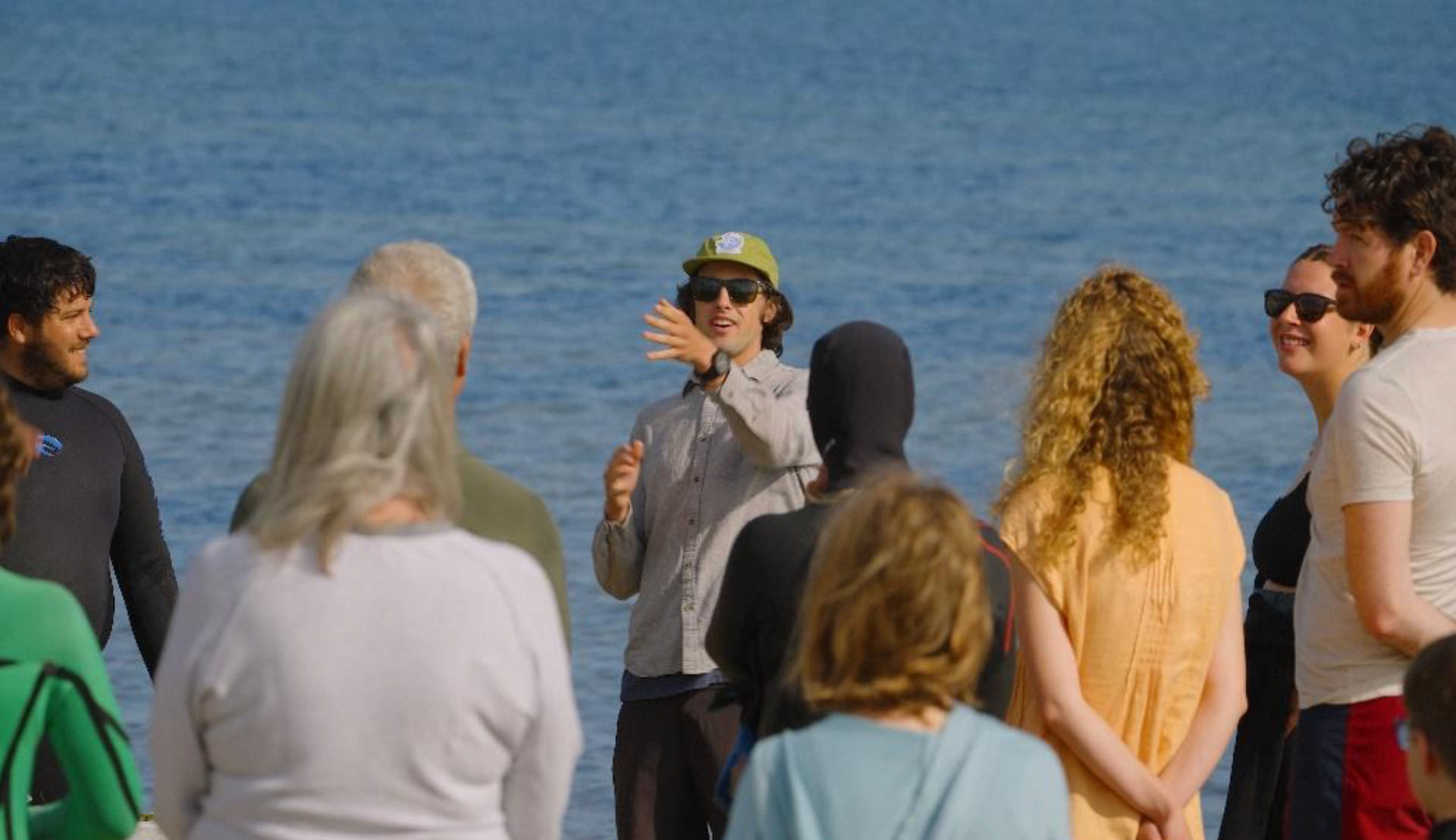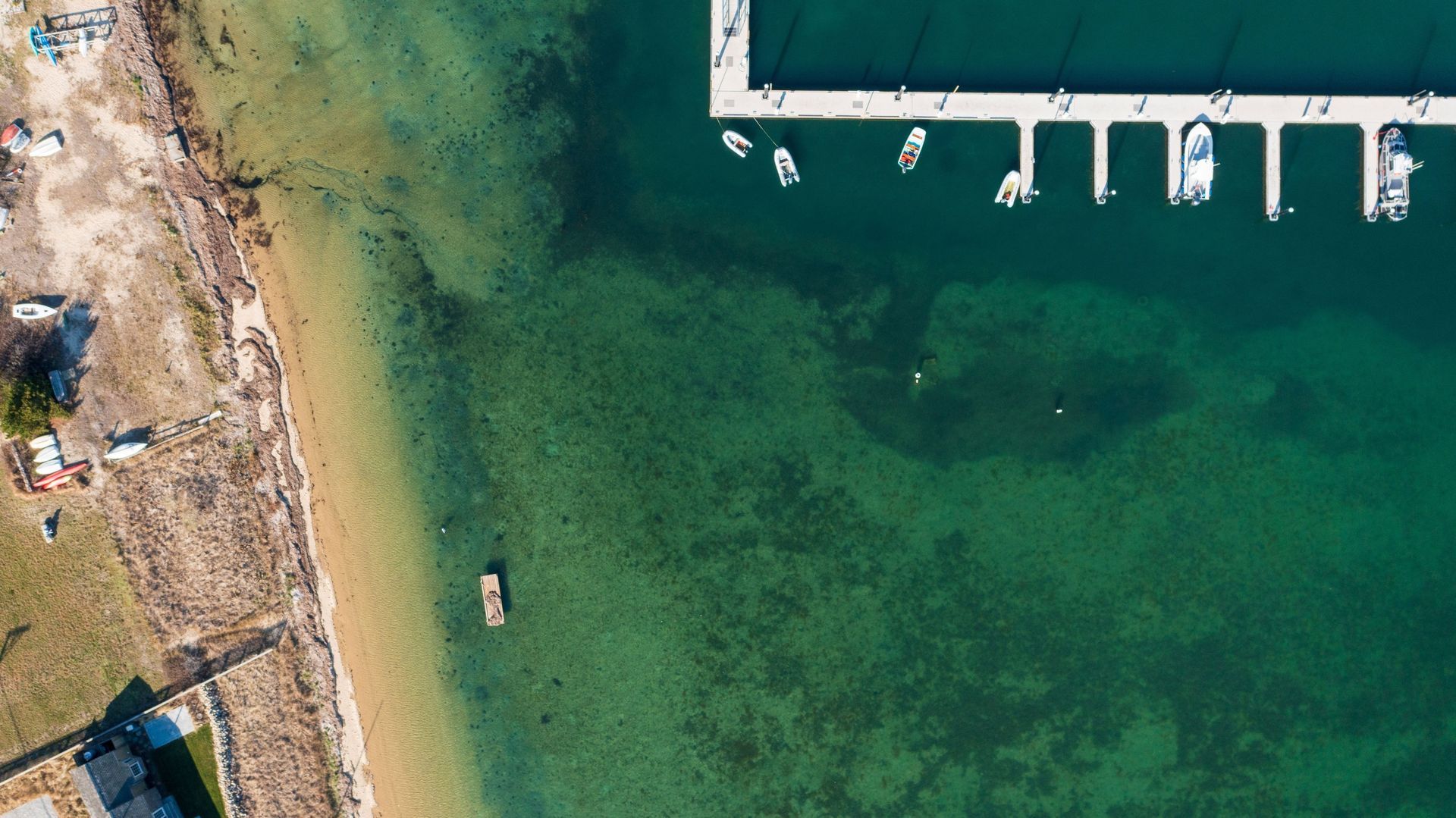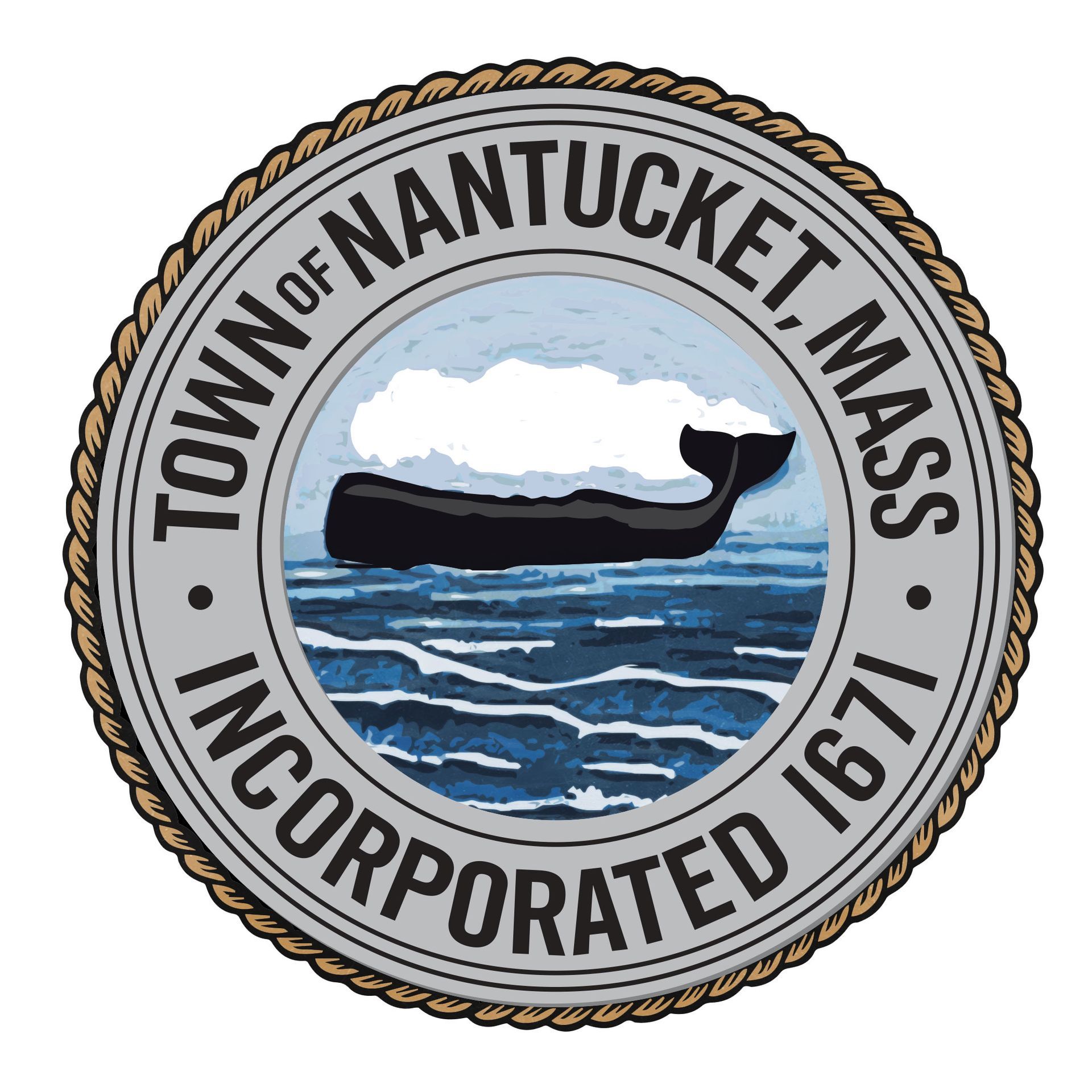NLWC News
NLWC Raises Critical Water Quality Issues with Surfside Crossing’s 40B Proposal
The remand hearing for Surfside Crossing’s 156 unit 40B development is ongoing before Nantucket’s ZBA, and the deadline for the public hearing has been extended to February 21st. Last fall when the remand hearing began, the NLWC hired two professionals to assist us with reviewing the current plans for the 18 condo buildings and onsite development. One of our consultants, Sean Reardon, is a professional engineer who has worked with a number of ZBAs across the state assisting as their peer review engineer on 40B projects. The second, Scott Horsley, is a renowned water quality specialist who has helped us take a closer look at the implications of the proposed development on the island’s groundwater and public drinking water supply. They discovered some critical issues with the project’s design that have raised major concerns with the ZBA.
What Reardon and Horsley’s reviews have brought to light about the proposal is a lack of compliance with the state’s Stormwater Management Standards as well as the MA Drinking Water Regulations and an important provision in Nantucket’s Zoning Bylaw governing development within our Wellhead Protection District. Almost the entire 13.5 acre Surfside site lies within this environmentally sensitive area. The Wellhead Protection District was established to protect the region of our aquifer that contributes to the public water supply wells (this region is also called a Zone II region).
The bylaw provision sets a standard that only up to 15% of a property within the Zone II can be developed as impervious surfaces unless it can be demonstrated that at least 95% of the stormwater is properly recharged into the aquifer AND there will be no degradation to groundwater quality. Impervious surfaces typically include things like parking lots, roadways, and buildings, where precipitation is impeded from naturally infiltrating into the ground. Instead it runs off the surface carrying pollutants or contaminants with it.
The aggregate amount of impervious surfaces proposed by project developers is three-and-a-half times (3.5x) the limit imposed by the Drinking Water regulations and the Nantucket bylaw. Modern stormwater infrastructure can do a great job of managing flooding by infiltrating run off into the ground, but without proper pre-treatment many of these contaminants are carried directly into our groundwater as the natural filtration provided by vegetation and organic soils have been eliminated.
To date, the developers have made no attempt to address these critical issues and have only responded with attempts to justify their lack of compliance with this standard based on a lack of proper enforcement at other sites within our Zone II on the island. The scale of this project and magnitude of disturbance, clearing 13 acres of natural vegetation and converting 6.48 acres (52% of the site) to impervious surfaces, warrants more effort than simply relying on what others have gotten away with elsewhere. As Nantucket continues to develop throughout the mid-island area, much of which is within our Zone II, it is critical that we take better care to ensure that these developments do not cumulatively degrade our public drinking water supply, and implement the state and local standards for managing impervious surfaces and stormwater properly.
We will continue to advocate against the proposed project, which fails to meet state standards for stormwater management and does not adequately prevent the pollution of our public water supply.
We encourage all community members to participate in the public hearing and raise any concerns you have about the project with the Zoning Board of Appeals. The ZBA is scheduled to hear this matter on Feb 3, from 1pm - 4 pm, on Feb 4, from 11 am - 2 pm, and on February 19, from 1 pm - 4 pm.
Our submission to the ZBA on these issues can be found here.
The ZBA’s entire Surfside Crossing packet as of 01/24/25 can be found here:
https://www.nantucket-ma.gov/AgendaCenter/ViewFile/Agenda/_01242025-14728?html=true.
